Swiss takes over as space agency’s rocket man
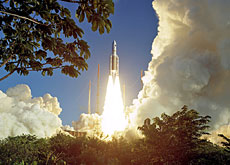
The head of the European Space Agency's (Esa) launcher programme, Switzerland's Marc Bertschi, is looking to consolidate the organisation's leadership.
Bertschi, who took up his position this year, told swissinfo that Esa needs to build on the success of its Ariane rocket system and demonstrate the strengths of new technologies currently under development.
Bertschi has a long experience of the space industry. He has already worked for Esa in the past, and his previous position was head of the Swiss Space Office, focusing on policy issues.
Today, he is responsible for the Ariane launcher programme, as well as work on the smaller Vega rocket, which will be used for lighter payloads as the agency faces stiff competition from the Americas, Asia and Russia.
swissinfo: Is it a big change switching from policy and administration in Switzerland to a more hands-on role at Esa?
Marc Bertschi: The scope of my activities is completely different now. Previously I was responsible for proposing changes to national space policy and implementing them. Here at Esa I am focused on specific programmes, preparing the evolution of our launchers. Before I might have dealt with issues such as security or ties with the European Union, while now it is more technical position.
swissinfo: How well does Swiss space policy fit with European objectives?
M.B.: European objectives are being drawn up by Esa in cooperation with the European Union. This means Switzerland is in a special position since it is a member of the space agency, but not of the EU.
For Switzerland to participate in initiatives under EU control, such as the Galileo global navigation positioning system, there is a double difficulty: the Swiss have to negotiate with the EU and they have to develop specific legal and financial instruments. This is why Swiss space policy is being revised, a process that should hopefully be completed by the end of this year.
swissinfo: Swiss companies have a long involvement with Esa launch programmes. Do you see this continuing?
M.B.: Swiss involvement is a heritage of the Ariane 5 programme, which began in 1987. We are now building on this legacy. With new developments such as the Vega launcher, work began five years ago and the industrial set-up is already defined. I don’t expect any major changes for a few years.
For the next generation launcher, there should be a new set-up, but the decision to go ahead with this programme won’t be taken at the earliest before 2008. Swiss industrial participation will be decided on the basis of Switzerland’s [Esa] contribution and competitiveness.
swissinfo: As the head of the launcher programme, what are the challenges you will be facing?
M.B.: In the short term, we have to settle on the final configuration of the Ariane launcher. For Vega, we need a couple of successful launches to demonstrate its capacities. For the long term, the global challenge is to adapt the European launcher sector to ensure independent access to space for Europe, serving our institutional needs, in particular for strategic reasons. This could be to guarantee our security or that European industry does not have to rely on launch services elsewhere for systems such as Galileo.
swissinfo: Given the competition among launchers, how difficult is it going to be for Esa to remain on top?
M.B.: The competition from countries with lower costs started with Russia in the early 1990s. People were already predicting the rapid demise of Ariane, but Europe is still there. It is clear though that industry will have to make efforts to reduce production costs, and one way of cutting those costs is to propose stable configurations of launchers so that the same industrial product is proposed each time. We can also guarantee quality of service and the reliability of our launchers. These factors should help us remain competitive at least until 2015 in the telecommunications satellite market.
swissinfo-interview: Scott Capper
The first European ministerial conference on space was held in Switzerland in 1960.
The European Space Agency was formally established in 1975.
It has 17 member states: Austria, Belgium, Britain, Denmark, Finland, France, Germany, Greece, Ireland, Italy, Luxembourg, the Netherlands, Norway, Portugal, Spain, Sweden and Switzerland.
Esa has a staff of just over 1,900.
Born in 1960, Bertschi is originally a mathematician, with a PhD from Lausanne University.
Much of his career was spent working for the Swiss government as a scientific expert, either for the State Secretariat for Education and Research or the foreign ministry from 1989 onwards.
His involvement with space affairs began in the early 1990s, when he helped set up the Federal Space Affairs Commission. Around the same time, he began collaborating with Esa on a series of programmes.
In 1998, he joined the newly created Swiss Space Office before becoming its permanent delegate to Esa in Paris.
From 2001 until 2005, he worked directly for the space agency, dealing first with launcher strategy before taking over as head of the director-general’s policy office.
In March 2005, he returned to Switzerland as head of the space office, heading back to Paris and Esa to take up his current position this year.

In compliance with the JTI standards
More: SWI swissinfo.ch certified by the Journalism Trust Initiative
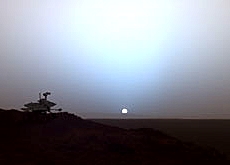
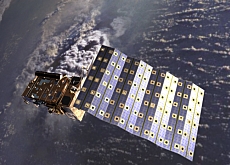
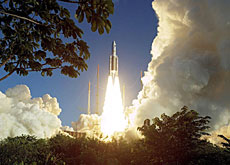
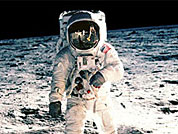
You can find an overview of ongoing debates with our journalists here . Please join us!
If you want to start a conversation about a topic raised in this article or want to report factual errors, email us at english@swissinfo.ch.